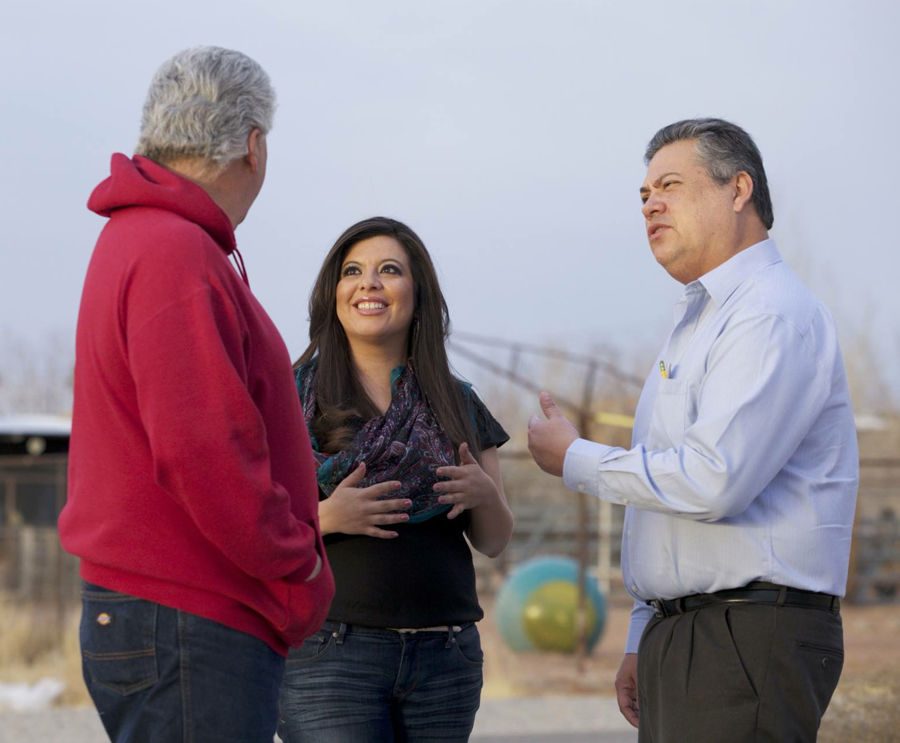Alumna brings social justice to legislature
State Rep. Mary Gonzalez (D-Socorro) graduated fron St. Edward’s University with a master’s in liberal arts in 2009. She is the first openly pansexual politician in the U.S.
Where were you born and where did you grow up?
I was born in El Paso County and I grew up in Fabens, Texas and Clint, Texas, which is right outside of El Paso city.
Why did you attend St. Edward’s?
I went to UT undergrad then when I was looking at master’s programs I applied to ASU and UT, but I want something really different than my undergraduate experience. I wanted to find a master’s program that I could explore in; that i could have some more one-on-one attention with my professors that would prepare me for the next step of a Ph.D. program because that was also my goal. So when I was investigating it all, St. Edward’s really seemed like the right fit for what I was trying to do.
Honestly, it was one of the more transformative experiences. I met professors that not only were educators, but became my friends, who took the time to mentor me one-on-one to make sure that I was prepared for to reach my goals of going to a Ph. D. program which challenged my ways of thinking and were really open to allowing me to do the research that I wanted to do academically.
How would you describe your experience as a student at St. Ed’s?
I feel like my experience at St. Ed’s was very cultivated by intellectual curiosity, a stronger connection to professors as mentors and peers in the academic world and some great, great student friends.
Who was your favorite professor?
Don’t do that to me. I like them all.
How about your most memorable professor?
I think I will pick three professors: Susan Gunn, Paula Marks and Dr. Ramsey.
Why are they so special?
I think they were the three that really worked hard to make sure that I was prepared for a Ph. D. program. They gave me the space to explore areas of research that maybe wasn’t exactly what they had envisioned, but knew it was important to me. They were just true academics and allowed me to grow as a fellow academic.
What led you to politics?
Brief lapse of sanity. I was kidding. It was a joke.
I started in politics when I moved to Austin as an undergrad. I interned at the Capitol for three different legislators. After my experience at the Capitol I hated it. So I decided to leave politics because it wasn’t creating the type of change I wanted to create.
I reflected and said, ‘Well, what is creating the change that I wanted to create?’ I looked at my professors and my advisors and they were really cultivating me to build and grow in a socially just way, to understand larger concepts of oppression and discrimination — things that I am really passionate about so I decided that I wanted to go into education.
I started working for the Dean of Students Office. I graduated and started working for the Multicultural Center as the assistant dean of Multicultural Affairs (and) a professor. I really fell in love with education. But in 2011, the legislature cut $5.4 billion, even though Texas was the second fastest-growing state. You know to have millions of school kids and still be cutting education, I realized that even if I was removing myself from the political process, the political process was always going to impact me. So I decided to get back involved politically.
My seat was held by a long term DEmocratic legislator, he decided to run for a different office, so the seat was an open seat. Annie’s List identified the seat and wanted to elect a woman. They went up and down trying to find a woman, and couldn’t find them. Finally, they approached me about running and I said no seven times.
It was one of my students who kind of pulled me aside and said, ‘You know Mary you always tell us to go out and change the world, here Annie’s List is doing the same exact thing.” And I was like, “Damn it. I’m a good professor!” So then I decided to practice what I preach and run for office. I was not necessarily sure that I was going to win, but we at least would put effort into it.
We worked really hard and knocked on thousands of doors, made thousands of phone calls and we won
Why is social justice a big part of your life?
It’s because of where I grew up. I grew up on the border so I could see injustice. I was living it but never really understood it. So when I came to college and was able to understand larger systematic oppression it was something I felt I wanted to tackle. If we’re not actively tackling it we’re allowing it to continue to exist.
Social justice has become the lens in which I view my work, my commitments to trying to make change. It’s everything I think about.







